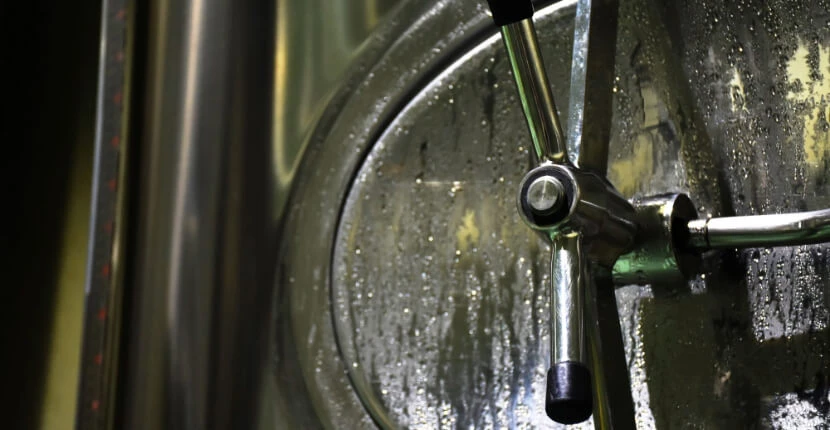
Fuel Tank Cleaning
Contact UsAt Fuel Tank Cleaning, we provide expert fuel tank cleaning solutions tailored to your needs, using advanced techniques to remove contaminants safely and efficiently across the UK, including and surrounding areas.
Over time, sludge, water, and microbial growth accumulate inside tanks, leading to fuel degradation, equipment damage, and costly repairs.
Regular cleaning removes these contaminants, reducing the risk of blockages, corrosion, and regulatory non-compliance.
Contact us today to schedule a fuel tank cleaning service and protect your fuel supply.
What is Fuel Tank Cleaning and Why is it Important?
Fuel tank cleaning is the process of removing sludge, water, microbial growth, and contaminants from a fuel storage tank.
Over time, fuel tanks in areas accumulate sediment and impurities that can degrade fuel quality, damage equipment, and reduce efficiency.
Regular cleaning ensures that stored fuel remains in optimal condition, preventing costly repairs, operational downtime, and fuel contamination.
What is the Cost of Fuel Tank Cleaning?
The average cost of fuel tank cleaning is £200 - £5,000.
The price of fuel tank cleaning varies depending on factors such as tank size, level of contamination, accessibility, and the cleaning method required.
Larger tanks or those with heavy contamination in regions may require more extensive cleaning, increasing costs. A detailed assessment is usually required to provide an accurate quote.
How does Fuel Tank Cleaning Work?
Fuel tank cleaning is essential for maintaining fuel quality, preventing contamination, and extending the lifespan of the fuel system. The process typically involves the following steps:
Tank Inspection: The tank is inspected to assess its condition using visual checks, borescope cameras, or sensors to detect sludge, water, microbial growth, or rust.
Fuel Removal & Filtration: The fuel is pumped out, filtered to remove contaminants, and temporarily stored if reusable.
Sludge & Sediment Removal: Built-up sludge and rust are removed using industrial vacuums, manual scraping, or solvents.
Tank Washing & Cleaning: High-pressure water, detergents, or chemical agents are used to clean the interior surfaces.
Microbial & Corrosion Treatment: Biocides and corrosion inhibitors are applied to prevent bacterial growth and rust formation.
Final Rinse & Drying: The tank is rinsed with fuel or water, then dried with air blowers or absorbents.
Fuel Return & System Reassembly: Filtered or fresh fuel is reintroduced. All components are checked and reinstalled.
Post-Cleaning Inspection & Testing: Final checks ensure proper function and fuel quality before the tank is returned to service.
What Types of Fuel Tanks do we Clean?
At Fuel Tank Cleaning, we provide cleaning services for a wide range of fuel storage systems and areas. These include:
Commercial Fuel Tanks
Common in petrol stations, transport hubs, and fleet operators, commercial tanks store large fuel volumes.
In zones, regular cleaning prevents sludge, microbial growth, and system blockages that lead to poor vehicle performance and higher maintenance costs.
Industrial Oil Tanks
Used in factories, refineries, and power plants, these tanks often hold crude oil or lubricants.
In regions, industrial tank cleaning removes rust, chemicals, and sediment to ensure system efficiency and legal compliance.
Airport Fuel Tanks
Airport tanks store Jet A-1 and Avgas for commercial and private aircraft. Maintenance is critical in areas where fuel purity and water control directly affect aviation safety.
Diesel Tanks
Diesel tanks support generators and heavy equipment in industries like agriculture, construction, and logistics. Cleaning diesel tanks in helps combat diesel bug and maintain combustion efficiency.
How Often should Fuel Tanks be Cleaned?
The frequency of fuel tank cleaning depends on fuel type, environmental exposure, and industry requirements. General guidelines include:
Commercial tanks: every 3–5 years
Industrial tanks: every 5–10 years
Airport tanks: every 3–5 years
Diesel tanks: every 1–3 years
Fuel analysis in regions can help optimise cleaning intervals based on tank condition.
Can Fuel Tank Cleaning Help Prevent Fuel Contamination?
Fuel tank cleaning helps prevent contamination by removing water, sludge, and microbial growth that degrade fuel quality.
This reduces the risk of clogged filters, injector damage, and inefficient combustion. Regular tank cleaning in areas protects equipment, lowers maintenance costs, and ensures uninterrupted operation.
What are the Consequences of Not Cleaning a Fuel Tank?
Neglecting fuel tank cleaning can cause serious damage. Stored fuel degrades due to water ingress and microbial activity, which leads to engine problems, clogged systems, and increased servicing costs.
In zones, untreated tanks may corrode, leak, or cause environmental hazards that result in fines, downtime, or permanent system failure.
